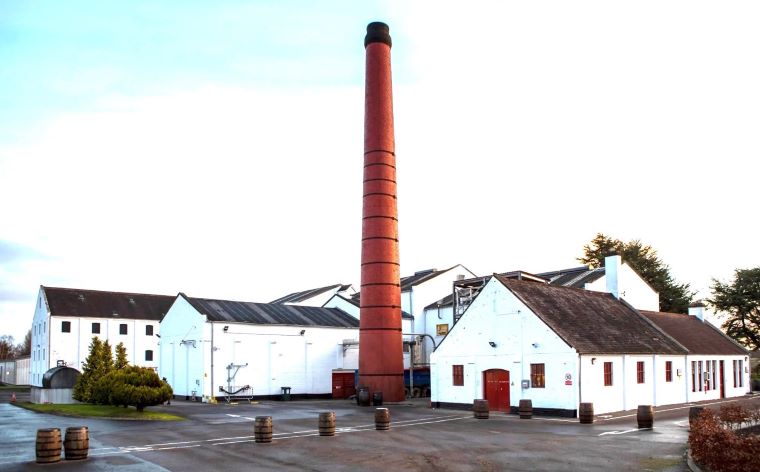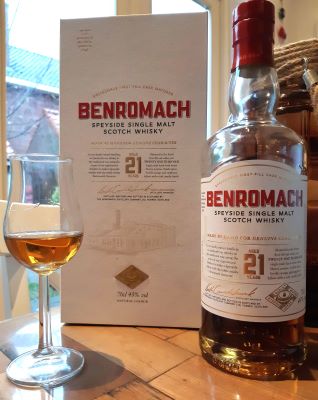
When Gordon & MacPhail purchased the Benromach Distillery in 1993, it was considered a curious acquisition, coming in the wake of one of the biggest busts to hit the Scotch Whisky industry. Global demand for Scotch had surged in the 1960s and 1970s and, unsurprisingly, the industry grew accordingly. However, by the early 1980s things were looking dark – the industry had massively overshot the mark and was now sitting on a proverbial Loch of Whisky. Most distilleries – the lucky ones – dramatically slashed their production. Nearly a quarter of all active distilleries in Scotland closed between 1983 and 2000, most of them forever.
Deemed to be a “surplus” distillery, Benromach was mothballed in 1983. Established in 1898 in the town of Forres, about 20 minutes outside of Elgin, Beromach’s history was rather unremarkable, though its whisky was always well regarded. In 1950, John Urquhart, who was then at the helm of Gordon & MacPhail (G&M), made a significant bid to purchase Benromach, but it would end up in the hands of another major whisky firm, Seagrams.
Gordon & MacPhail is a 128-year-old family business that has been owned by the Urquharts for 4 generations. They are, without question, the world’s preeminent independent bottler, uniquely laying down their own casks of new make spirit rather than purchasing mature whiskies from the open market. Of the 25 oldest whiskies ever bottled, almost all of them have been either bottled by G&M or, if bottled by others, the liquid was often bought back from G&M. The company doesn’t think or plan in terms of years, but rather in generations. When G&M finally completed its acquisition of Benromach in 1993, 43 years later, the rest of the industry was on its knees.
To many industry observers this must have seemed like folly. However, smart investors – like many of the best run family firms – know that the best time to pull out the cheque book is when things are tough. Never ones to rush, they patiently rebuilt and refitted Benromach, ensuring that it was done properly so that customers could enjoy their premium product for generations to come.
 King Charles, then Prince of Wales, was on hand for the distillery’s grand reopening in 1998. And while the overall production would be smaller than before, none would be assigned for blending.
King Charles, then Prince of Wales, was on hand for the distillery’s grand reopening in 1998. And while the overall production would be smaller than before, none would be assigned for blending.
Benromach is now exclusively produced for consumption as a single malt.
The distillery has a relatively long fermentation process and employs a slow distillation – both of which create a more complex and fruity spirit. And, like its parent company Gordon & MacPhail, only fills spirit into the best quality oak; when it comes to wood policy, G&M and Benromach set the gold standard.
While the company has tried to honour the past by replicating its pre-closure taste – in the 19th century most Speyside whiskies would have been at least somewhat peated – its current offering is considered lightly peated.
Today, Benromach is one of the most compelling and exciting Scotch whisky brands. Its core range whiskies, such as the 10, 15, and now 21-year-old, are all excellent quality and very good value. The roots of that success go back far more than the 25 years since reopening: rather, it can be traced back more than a century to the original founding of Gordon & MacPhail whose initial mandate in 1895 was to sell “a superior article at a popular price.”
Benromach whiskies, especially the 10- and 15-year-olds, can be found at most good whisky retailers, while the 21-year-old is available in smaller quantities from selected retailers. The Benromach Distillery offers a range of tours and experiences 12 months of the year, and it is only a short drive from either Inverness or Elgin. Certainly, if you are going to make the trip to Benromach, you would be wise to visit Elgin and see the original Gordon & MacPhail shop.




















Leave a Comment